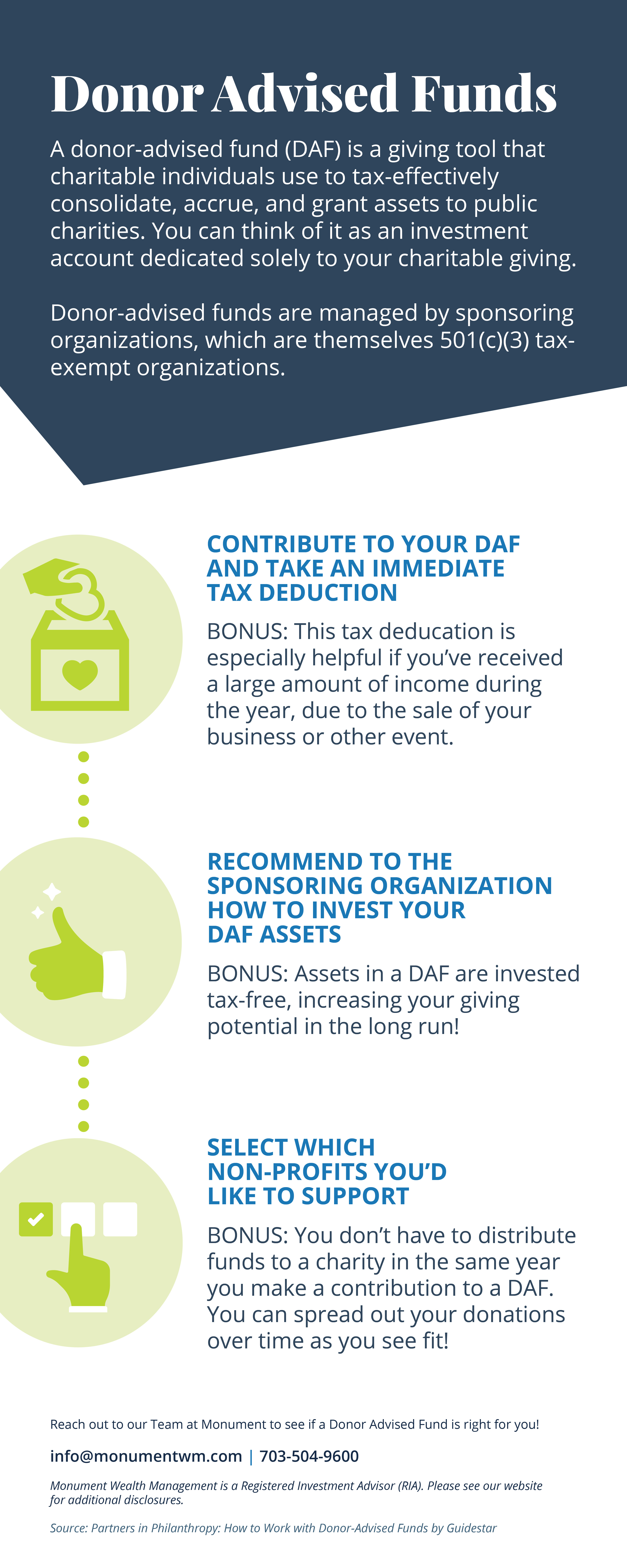When looking to optimize your charitable giving, you may want to consider using a Donor Advised Fund. What is a donor advised fund, you ask? Well, here is a quick overview of what they are, how they work and who tends to find them most helpful.
What is a Donor Advised Fund?
A Donor Advised Fund (DAF) is a type of charitable giving vehicle. Here are some basics on how they operate:
- You receive a tax deduction in the year you make a contribution equal to the full value of the assets you contributed.
- Contributions can be made at any time during the life of the DAF.
- You can distribute donations on a flexible time table ( there are no minimum or maximum annual distribution requirements).
- You can invest funds in a DAF so that they will grow or generate income, depending on your philanthropic goals—all of which is tax-free since money in a DAF is qualified charitable funds.
The infographic below helps break down the DAF process nice and clear.

Why use a Donor Advised Fund?
A Donor Advised Fund (DAF) can especially come in handy if:
- You’re getting a windfall this year, such as from a business sale or inheritance, and you’d like to earmark a portion for charity, but you don’t know yet which charity and how much
- You want to make a transformational gift to an organization in a few years that will take time to accumulate
- You have a large amount of appreciated stock that you’d like to use to fund charitable gifts, but you’re hesitant to realize big capital gains
Talk with our wealth advisory team to learn more about DAFs and other charitable giving options so we help make your charitable giving strategy work for you.
This first appeared on Monument Wealth Mangement.
Related: 3 Types of Financial Advisors: The Goldilocks Edition


